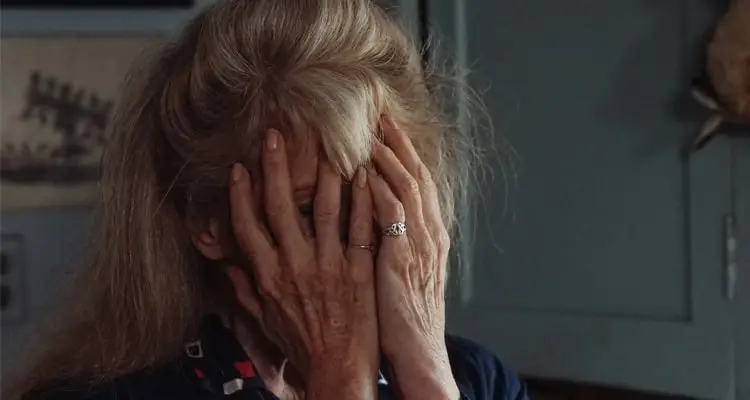
Blue Moon Senior Counseling empathizes with the unique challenges that can emerge while addressing panic attacks in seniors. As a prominent authority in mental health and overall well-being, our primary objective is to deliver extensive knowledge and actionable strategies to manage and overcome panic attacks in older adults effectively. This article explores the causes, symptoms, and effective treatments for panic attacks. Our ultimate mission is to equip individuals and their caregivers with the necessary knowledge and tools to navigate this complex and challenging experience successfully.
What Are Panic Attacks?
Panic attacks are characterized by intense episodes of overwhelming fear or apprehension, often accompanied by physical symptoms, such as shortness of breath, rapid heartbeat, dizziness, and a sense of impending doom. While panic attacks can affect individuals of any age, they may manifest differently in seniors due to various factors, including underlying health conditions, medication side effects, or life transitions.
Unique Challenges Faced by Seniors
Age-Related Changes: The aging process can bring about physiological changes that make seniors more susceptible to panic attacks. For instance, decreased mobility, cognitive decline, and sensory impairments may contribute to heightened anxiety and panic responses.
Comorbidity: Older adults often contend with multiple medical conditions, such as cardiovascular disease, respiratory disorders, or neurodegenerative diseases. These comorbidities can exacerbate panic symptoms and complicate treatment approaches.
Life Transitions: Adjusting to significant life changes, such as loss of a loved one, retirement, or transitioning to assisted living facilities, can trigger or worsen panic attacks in older adults. Understanding and addressing these transitional challenges is crucial for effective management.
Identifying Symptoms of Panic Attacks in Seniors
Recognizing the signs and symptoms of panic attacks in seniors is essential for early intervention and support. Common symptoms may include:
- Feelings of fear or anxiety that arise suddenly and intensify
- Chest pain or discomfort
- Shortness of breath or difficulty breathing
- Rapid heartbeat or palpitations
- Sweating or chills
- Trembling or shaking
- Nausea or stomach distress
- Dizziness or lightheadedness
It’s important to note that panic attacks can often mimic symptoms of other medical conditions, such as heart attacks or respiratory disorders. Thus, it is crucial to consult a healthcare professional to rule out any underlying medical causes.
Causes and Triggers of Panic Attacks in Seniors
Understanding the underlying causes and triggers of panic attacks is paramount in managing and preventing future episodes. Some common factors that may contribute to panic attacks in seniors include:
Biological Factors: Neurochemical imbalances, genetic predisposition, and changes in brain structure and function can all play a role in the development of panic attacks.
Psychological Factors: Pre-existing anxiety disorders, past traumatic experiences, or chronic stress can increase vulnerability to panic attacks.
Environmental Factors: Certain situations, such as crowded places, unfamiliar surroundings, or social interactions, can trigger panic attacks. Identifying and avoiding these triggers can be an essential management process.
Treatment Options for Panic Attacks in Seniors
When treating panic attacks in seniors, a comprehensive and tailored approach is key. Here are some effective strategies:
Psychotherapy: Cognitive-behavioral therapy (CBT) has successfully treated panic attacks. This form of therapy helps individuals identify and challenge negative thought patterns and develop coping mechanisms to reduce anxiety.
Medication: In some cases, healthcare professionals may prescribe medications, such as selective serotonin reuptake inhibitors (SSRIs), benzodiazepines, or beta-blockers, to manage panic symptoms. However, medication should always be carefully monitored and adjusted to minimize potential side effects.
Lifestyle Modifications: Encouraging a healthy lifestyle can greatly contribute to managing panic attacks. Regular exercise, relaxation techniques (e.g., deep breathing exercises, meditation, or yoga), and maintaining a balanced diet can all help reduce anxiety and promote overall well-being.
Supporting Seniors Through Panic Attacks
Providing support and understanding to older adults experiencing panic attacks is vital. Here are some ways caregivers can help:
Create a Calm Environment: Establishing a calm and soothing environment can help reduce anxiety levels during panic attacks. Ensure that the surroundings are quiet, clutter-free, and well-lit.
Encourage Open Communication: Encourage open dialogue with the individual, allowing them to express their feelings and concerns. Active listening and reassurance can go a long way in reducing anxiety and promoting a sense of safety.
Offer Emotional Support: Being empathetic and understanding is crucial when supporting someone through panic attacks. Ensure that you are there for them and provide comfort during distressing episodes.
Educate and Inform: Sharing information about panic attacks, their causes, and available treatment options can help demystify the experience and empower the individual to participate in their recovery actively.
Managing Panic Attacks with Senior Counseling
When it comes to managing panic attacks, senior counseling can be a powerful resource for individuals seeking support and guidance. At Blue Moon Senior Counseling, we specialize in helping older adults navigate and overcome panic attacks. Our experienced counselors provide tailored strategies and compassionate care to empower individuals to regain control of their well-being.
With our comprehensive approach, you can learn valuable coping mechanisms, gain insights into the root causes of your panic attacks and develop personalized techniques to manage and reduce their impact on your life. Take the first step towards a brighter and calmer future by contacting Blue Moon Senior Counseling today. Together, we can work towards managing your panic attacks and enhancing your overall mental health and quality of life.










